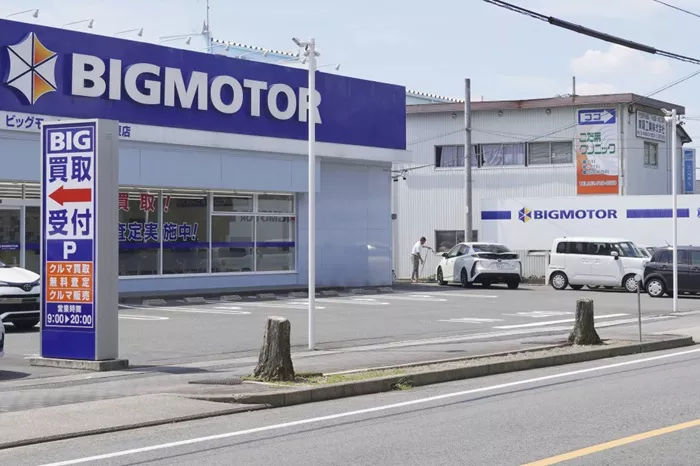The recent scandal involving Bigmotor, a now-defunct used car dealership, has unveiled a significant wave of fraudulent insurance claims. An investigation has revealed that around 30% of the claims examined over the past five to eight years are fraudulent.
According to Asahi, major nonlife insurance companies—Sompo Japan Insurance, Mitsui Sumitomo Insurance, Tokio Marine and Nichido Fire Insurance, and Aioi Nissay Dowa Insurance—have identified approximately 65,000 fraudulent claims linked to Bigmotor.
These insurers have scrutinized about 236,000 claims submitted in the past five to eight years. By early July, they had reviewed nearly 80% of these claims, with 30% being flagged as fraudulent.
The insurance firms and Balm, the company that succeeded Bigmotor and was rebranded as Wecars, have reached an agreement on adjustments for only 1,700 claims, which constitutes about 2.6% of the total claims. Balm has ceased its own investigation due to the lack of adequate archival records for a thorough review.
Going forward, Balm has opted to resolve disputes through court mediation.
The fraudulent activities at Bigmotor involved intentionally damaging vehicles—using methods such as striking them with golf balls wrapped in socks, scratching them with screwdrivers, or breaking headlight covers—to inflate repair costs. This scandal has resulted in increased insurance premiums for vehicle owners.
Independent investigations by the insurers have been conducted, and findings have been compared with Balm to determine appropriate refund amounts. Balm has declined an interview request but stated on July 11 that it is committed to addressing insurance claims in good faith.






















